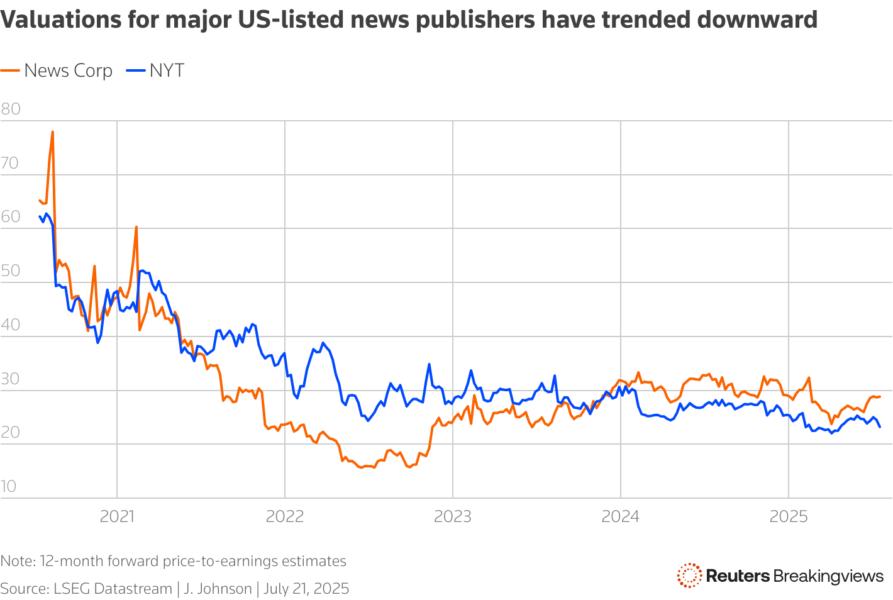Google zero will cement media winners and losers
AI-powered answer engines are about to make a traditional list of search results look as dated as a rotary telephone. ChatGPT is now being used to answer queries previously handled by Google – which is becoming more like a chatbot. In the future, search platforms may stop sending traffic to third-party websites altogether. The so-called “Google zero” moment could be devastating for battered publishers.
The media industry has learned the hard way that Big Tech makes for a fickle friend. Updates to Google’s algorithms in 2022 cost UK outlets like the Guardian and the Daily Mail up to 40% of their search visibility across the year, according to media research group Enders Analysis. In 2023, many outlets reported steep declines in referral traffic from Facebook when the site deprioritised news content.
Artificial intelligence poses an even greater threat. Thanks to Google’s AI overviews feature, users now get a summary of relevant information at the top of their search results. That means they can often get the answers they’re looking for without reading any further. Zero-click searches for news subjects – those resulting in no traffic for publishers – increased from 56% to nearly 69% year-on-year to May 2025, per analytics firm Similarweb.
Google is also rolling out AI summaries on its Discover platform. This curated feed previously served users links to news sites based on their web browsing activity. Some publishers, like Mirror owner Reach RCH, have said that Discover drives more traffic to their sites than Google search. But now, instead of purely showing headlines from news outlets, it has started displaying AI-generated overviews of a given story.
Groups which rely more on subscription sales, and less on advertising, will be better able to manage the changes in search. Circulation and subscription accounted for over 70% of Dow Jones’ sales last year. At the New York Times, subscriptions also account for some 70% of total revenues.
Still, investors are jittery. Over the past year, the valuations of the New York Times NYT and News Corp
NWS have both come under pressure. The New York Times now trades on 23 times its expected earnings for 2025, down from nearly 31 times last year, and News Corp trades on under 29 times earnings, compared to over 33 times last year. Shareholders may be concerned that even though the news outlets have pivoted to subscription models they will be damaged when their content simply becomes less visible online.

These fears seem overdone. In the longer term, Enders analysts predict that consumers who want context, taste or a human voice will still turn to publishers and not chatbots. Outlets which have established – and monetised – that human connection with readers will emerge as winners. The same cannot be said for the purveyors of clickbait.
Follow Jennifer Johnson on Bluesky and LinkedIn.
CONTEXT NEWS
Reuters reported on July 10 that OpenAI, the maker of ChatGPT, plans to roll out its own web browser in a matter of weeks. The tool will keep some user interactions with a chatbot-like interface instead of directing them to click through to third-party websites.
Alphabet-owned Google revealed in May 2024 that it had made AI overviews available to all U.S. users, and by July 21 the feature is now available in more than 200 countries worldwide.